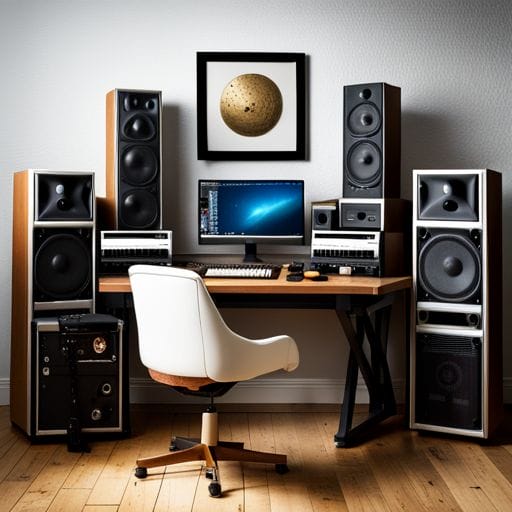4 Tips for Building a Music Production PC

What you need to build a PC for music production?
The build list for your music production PC Quad-core / 2.4Ghz clock speed processor minimum, No less than 8GB of RAM (but 16GB will be more efficient), At least 500GB of storage (SSD preferable), 1TB will be more cost-effective in the long term, A motherboard compatible with your components and enough USB inputs Building a music production PC requires thoughtful consideration, expert advice, and precision. With the right tools and insights, anyone, from beginners to professionals, can create a machine that enhances music production efficiency. In this article, we will guide you through 4 strategic tips that will inspire you to build your personalized, high-performance music production PC.
1. Choose a Proper Case: The first step in building a music production PC is selecting an appropriate case. It helps in determining the size and number of components you can incorporate in your PC. Aim for a case that can accommodate expansion and has ample airflow to maintain cooling. The case should also support any future modifications for your evolving music production needs.[2]
2. Select a Reliable Power Supply: The next critical component is the power supply. It should be capable of efficiently supporting all the components of the PC. Notably, the power efficiency of a power supply unit (PSU) should be above 80%. Additionally, it would be wise to invest in a PSU with more capacity than your initial requirements to support future hardware upgrades. Ensure the PSU fits perfectly to your PC case.[2]
3. Install a Capable Processor: A capable processor improves the overall efficiency of your music production PC. It makes sure that your computer can handle multiple jobs at the same time, such as running DAWs (Digital Audio Workstations), synthesizers, samplers, and various plugins. Make sure the processor and motherboard are compatible. Remember, a high-performance, multi-core processor will favor demanding music production tasks.[2]
4: Mind the Acoustics: Since we’re talking about music production, a quiet PC is a must. Loud fans can interfere with your work. Check if the CPU fans spin very fast and emit high noise levels during startup or application launching. It is possible to manually control the CPU fans in BIOS to ensure a quieter work environment. Choose a PC case, fans, and cooling solution that contributes to a quiet operation.[3]
By carefully choosing your PC components and ensuring they work harmoniously together, you can build a robust music production PC made specifically for your needs. Remember, the right bunch of expert advice can help you navigate this exciting journey, leading to a PC that measures up to the demands of your music production vision!
